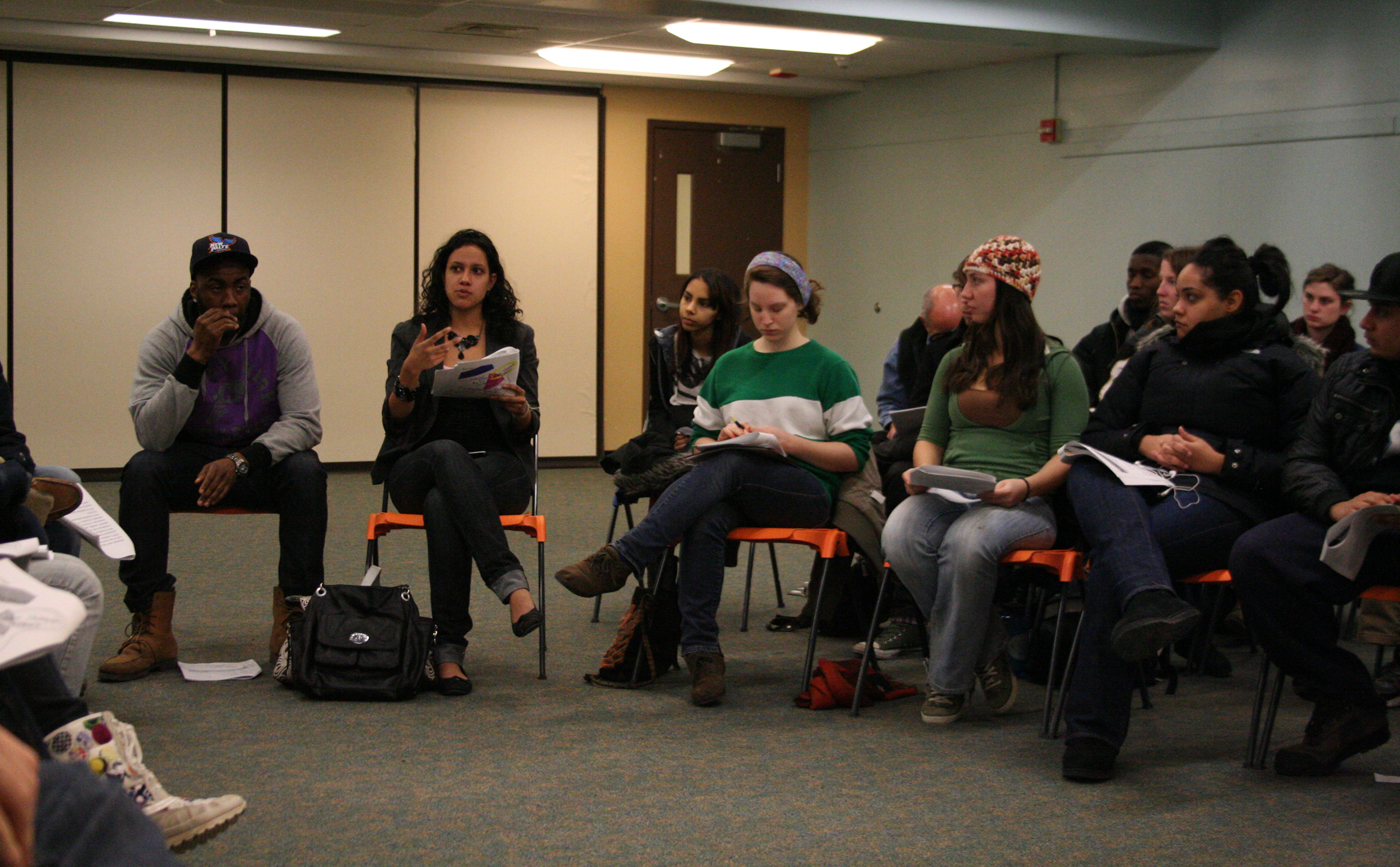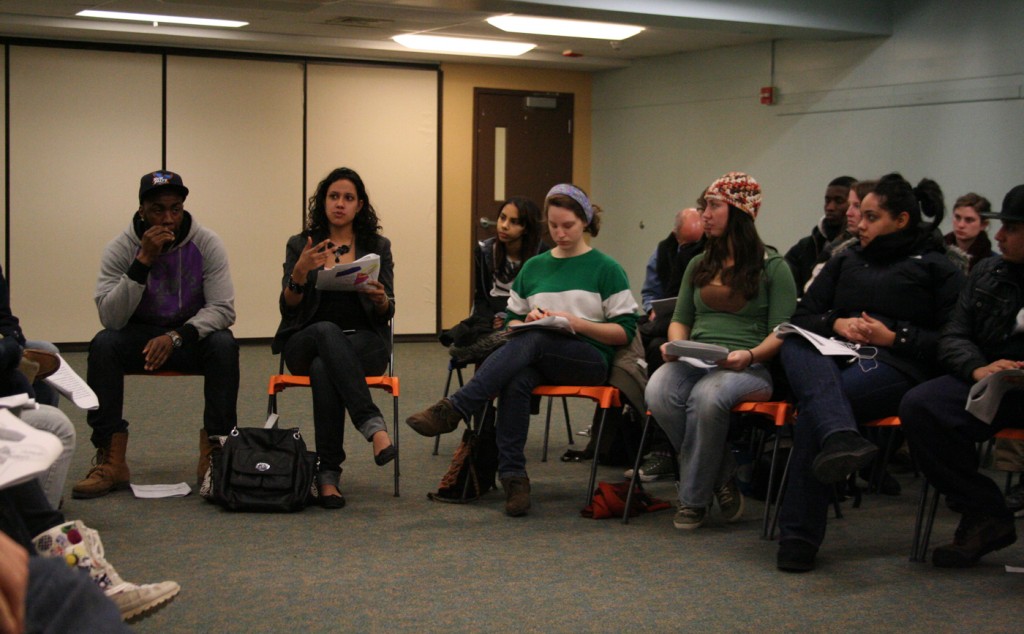

Student Association (SA) Executive Board (E-board) members, senators and other students are currently reaching out to the campus and local community to involve them in a teach-in program about school and state budgetary woes next month.
On March 8, organizers are asking that students walk out of their classes to participate in a series of workshops that will focus on the financial climate of educational and other public institutions. The college’s current $3.2 million deficit, which Interim President Donald Christian said was caused by cuts in state support and the need to pay contractual salary increases and other factors, will be among topics discussed.
Vice President of Academic Affairs and Governance Caitlin Ryan said she hopes different members of the community will get involved to host workshops, in addition to students who have taken the initiative to learn about what is going on at the campus, state and national levels.
“They are going to be about what’s going on here and in the state in general,” Ryan said of the workshops. “These cuts are an attack on the public sphere. We come from the largest state school system in the world…if we can make an impact through SUNY, I feel like that would make a statement to the rest of the country.”
In preparation for the event, the SA E-board has been researching what students at other schools in the system like SUNY Albany have done to voice their concerns about cuts in state support. According to a pamphlet produced by Ryan, the SUNY system’s budget has been reduced by $680 million since 2008.
Ryan said she heard the Legislature criticized students at SUNY Albany for hosting a walkout, saying “they told them if you’re not going to your classes you obviously don’t care about school.”
However, Senate Chair Terrell Coakley said education can happen outside of the classroom, and becoming educated about the budget is important.
“We’re leaving to stand for something that’s greater and affects not just everyone in that classroom, but the staff on a huge level,” he said. “It’s not miniscule – it affects everyone.”
Christian said he encourages students to learn about these processes and how the decisions of the Legislature affect the campus’s budget. However, he said he would be dismayed to see students protest administrators for making “tough decisions” under difficult financial circumstances.
“It’s fine if they’re protesting the Legislature and the governor and the people that are controlling the amount of money that is coming into the SUNY system,” Christian said. “I hope others recognize that no matter what cut [administrators] make, somebody is going to feel pain.”
While she said she feels there needs to be more transparency and student involvement in the budget planning process set by administrators at SUNY New Paltz, Ryan said the focus of the teach-in will be the Legislature and what students can do to reach out to government officials and demand that the cuts stop.
New Paltz students and others from across the SUNY system will be lobbying state officials on March 15 at SUNY Palooza. Coakley and Ryan said by going to the teach-in, students can be better prepared to go to Albany, N.Y. one week later and discuss financial issues in an informed manner.
“The worst thing would be for us to get students riled up about the budget and then go to SUNY Palooza without knowing the right questions to ask,” Coakley said. “We can kind of deflect [students’] anger into a positive energy that will stimulate us to move progressively forward, as opposed to just being angry about the wrong things.”
SA E-board members gathered students’ ideas about the types of workshops they would like to be a part of at the teach-in and how to best get students involved in the program at their budget forum Tuesday.
Ryan said students from SUNY Purchase have been invited to participate in the teach-in. Other ideas for the March 8 program include having performances in the Student Union Multipurpose Room after the workshops in the conference rooms and getting different student organizations and faculty members involved.
On Wednesday, Ryan presented a letter to the faculty at a budget forum hosted by the United University Professions union that explained the gaols of the teach-in and askedd for their support.
“Ideally, the professors would be right there with us, but we understand that they may have reservations,” Ryan said. “If professors are uncomfortable with a walkout, we would hope that March 15 would be the day they show solidarity with us so we can go up and lobby the Legislature.”
Ryan said she hopes that those who attended the student-run forum Tuesday will continue to be involved in the planning process for the teach-in, and another group meeting may be planned.
